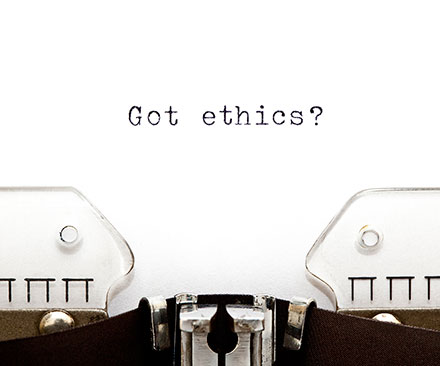What Don’t You Know About Your Brand?
Admitting what you don’t know throughout the branding process can open your eyes to new insights.

|
If you ask most people, they consider themselves to be honest. But who among us hasn’t fibbed a little bit about what we know? Or what we think we’re supposed to know? Being completely transparent about what you don’t know can be uncomfortable. Even more so when it comes to your business and your brand. When it comes to developing your brand, what are you missing out on if you don’t step outside your comfort zone to learn more? Remember what you’re giving up every time you think you know it all. Learning from your teamWe can all agree learning new things is a good thing. But how about learning about what your employees think about your organization? Have you been open to hearing the full truth? There are probably systemic issues you’ve been brushing under the carpet, hoping they’ll go away. They won’t. If you want to recruit and retain good talent, you need to hear the truth, accept it, and work with your team to correct what’s wrong. Don’t assume you know all the issues or which ones are most important to employees. Ask them. And create an environment where they can answer honestly. Then take steps to change. You won’t get continual feedback if you do nothing to address it. Maintaining quality in your internal operations is critical to your brand’s success. If you don’t deliver on your brand promise you won’t be believed by your customers. Learning from your customersJust as your employees have special insight into your business, so do your customers. They know when you miss deadlines and when you go the extra mile to get something right. Facilitate ways to get feedback from your customers and listen to it. Periodically engage an outside organization to get survey data. Quantitative data is helpful if your business does a large number of transactions. Small adjustments based on this data can move the needle significantly if you are a volume business. But if you are more relationship-based, qualitative surveys will give you more information that you can use. Because you are able to ask not just what but why. Why did something go wrong? Why did something go right? And make sure you are asking all the questions, not just the ones that will make you look good. The dealer that services my car does a phone survey with me after every visit. But they only ask me if the work on my car was done to my satisfaction. They don’t ask me anything else about my experience. How hard was it to make the appointment? How was I greeted? What was the experience in the waiting room? When I picked up the car were all the settings on my car the same as when I dropped it off? Believe me, if they asked me these questions, I’d have plenty to say on the matter. Which would make their next customer’s experience better. But they don’t ask. Because they don’t really want to know. Not asking questions when you lack understanding risks a much bigger mistake down the line. That can be costly in terms of actual dollars or in terms of your reputation. It’s better to take time to hear the truth than to cause harm to a project, a person, or the world. So, take yourself less seriously and be open to hear what you don’t know about your brand. You and your business will be better for it. |
Audience Insight For Better Branding
Where to find cultural context and how to apply it.
Integrity Will Make Your Brand More Successful
The future of business demands honesty, transparency, and trust.
Culture = Brand
Using your culture to define, guide, and build an authentic brand.



